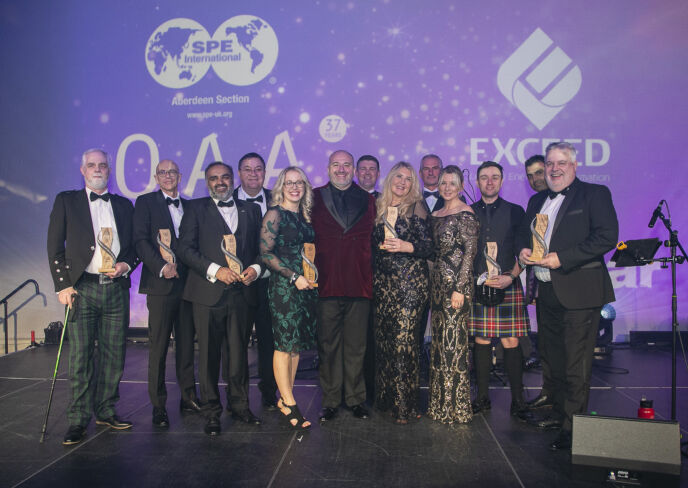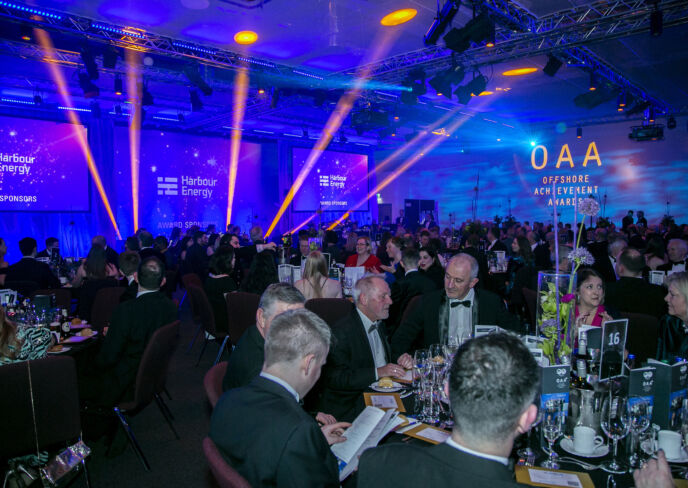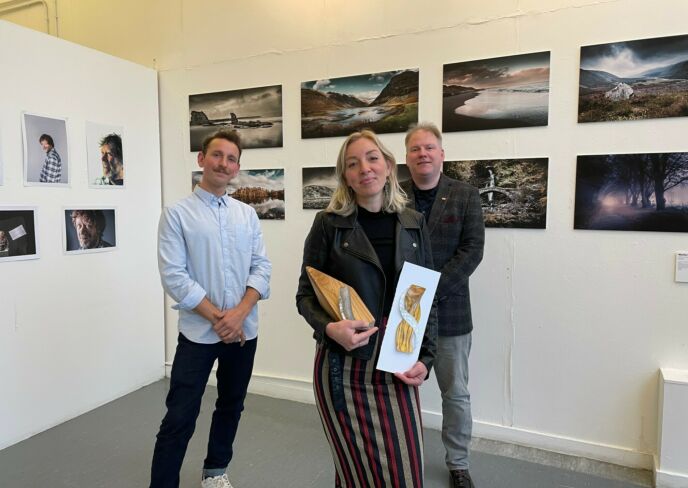Rachel Riley Returns to Host OAAs
March 2019
This year, the Offshore Achievement Awards is thrilled to be welcoming Rachel Riley back as the evening’s host. Mathematician, influential ambassador for STEM (science, technology, engineering and maths) subjects in schools, and – of course – a familiar sight on our TV screens, Rachel truly understands the ethos behind the OAAs. She’s ably steered us through three wonderful evenings so far; we can’t wait to hear from her again on Thursday night.
In the meantime, we caught up with her to find out more about the role she plays in promoting STEM.
Hi Rachel! We're so excited to have you back as the host of the Offshore Achievement Awards. As you know, the awards and SPE Aberdeen focus heavily on the promotion of STEM. What do you think needs to be done to improve “branding issues” that are related to STEM?
"The best way to break down barriers and smash through stereotypes, is for real people working in the STEM industry, to get out into the public and into schools and universities, to tell people about who they are and what they do.
"You learn science and maths as you would climb a ladder, you start at the bottom and build on your own learning rung by rung, until you find your preferred specialty as you go further up. Meaning that to most people, even those also working in STEM but in a different specialty, listening to someone describe what they do might as well be done through the medium of interpretive dance - it’s very impressive and all, but utterly bewildering when all you can do is the Macarena! It’s important to get the message across that a career in STEM is not just accessible to geniuses, but anyone with the will and desire to follow that path can do, if they stick with it and take it step by step."
There’s been a lot of profiling of “women in industry”; do you think this is having an impact on getting girls and young women interested in STEM subjects and the potential careers around those? Or is there still some way to go?
"There’s a famous social science test that’s been underway over the last 50-odd years in America, that’s been asking schoolchildren to draw scientists, and by far the most common picture that’s conjured up from children’s imaginations, is the stereotypical image of white male. In 1966 only 0.6% of children drew a woman, but looking at it through glass half-full specs, encouragingly, from the 1980s onwards, on average 28% of children draw a female (45% of girls did, compared to just 5% of boys). So things are getting better, slowly but surely, but obviously there’s definitely more work to be done!
"We have to see people to whom we can relate - already succeeding in these roles in STEM - to be able to imagine ourselves doing the same thing; so it’s incredibly important to highlight and promote a diverse mix of faces and voices to encourage the balance of people working in STEM to continue to diversify.
"There are always mixed feelings with regards to ‘female only’ awards dos and categories, as some would argue that this is patronising or even sexist, as women are just as capable as men to enter plain old ‘Engineer of the Year’ type awards, and with no such equivalent for men, this is discriminatory against them.
"It may surprise you to hear that I strongly disagree with that viewpoint. Even though I would, without question, agree that women are just as qualified as men to win any generic ‘Best Engineer’ award, I think it’s particularly important to shine a spotlight on a range of women who are doing well in careers in STEM, in order to inspire the next generation to believe they can go on to follow in their footsteps. This is especially important for the more male dominated sectors of STEM like the engineering fields, where women represent around just 10% of the workforce. So in the interest of balancing out that asymmetry, extra effort needs to be made to have a wider range of stories and voices showcased."
From your own experience, are there any particular campaigns you’ve seen/been involved in that you think have made a real difference to the promotion of science and maths?
"I’m involved with a lot of different projects which all play their part in different ways, and we need a multi-pronged approach to drive change to get more qualified graduates going into industry, and that starts with 5 year olds at school. Projects like the Premier League’s ‘Primary Stars’ initiative in England and Wales, teach kids maths using the real-life context of football stats and data, whilst they’re exercising and having fun at the same time, which has proved really popular with students and teachers alike. Another event I enjoyed was with the Manchester United Foundation. The charity took a group of girls from the Greater Manchester area to the cinema for the UK premier of the film Hidden Figures, inspired by a true story about 3 African American women in 1960s America, who helped get man into space. The film followed a panel Q&A with 7 women working in different areas of STEM. For some of the girls it was their first trip to the cinema, let alone chatting with a female space-scientist. Many left the event, saying they felt inspired to consider a career in science having heard from real women already doing so, telling them that it was a viable and great career option that would be open to them if they wanted to pursue it."
Why are you so passionate about sharing your educational journey with others/young people?
"A study last year found that in the UK, there’s a shortage of around 173,000 skilled workers across STEM industries, which is estimated to cost the sector approximately £1.5bn a year plugging the shortfall. There’s not enough positivity about maths and science around, and low self confidence in the subjects, combined with the myth that you have to be the equivalent of Einstein or Ada Lovelace to work in STEM, means that kids are missing out on rewarding, fulfilling and lucrative job opportunities. They shy away from STEM subjects in too high a number, at too many points during their educational careers."
This is your fourth year as host of the Offshore Achievement Awards; we’re delighted to have you back! By now, you will be very familiar with the whole event – what, do you think, is the differentiator that keeps them so popular with the UK energy industry?
"The Offshore Achievement Awards is always a great night! The level of professionalism involved with making the videos, explaining each entry for all nominees in each category is something special that I’ve not seen in any other awards events. There’s a strong focus on education, inspiring the next generation and celebrating talent both new to the industry and on the veteran side of things, even down to the different design of the awards themselves each year. Plus, Scotland always puts on the best events - there’s a lot to be said for a colourful variety of kilts over a sea of black and white tuxes on a night out - that and the whisky always makes for a lively night up in Aberdeen!"




